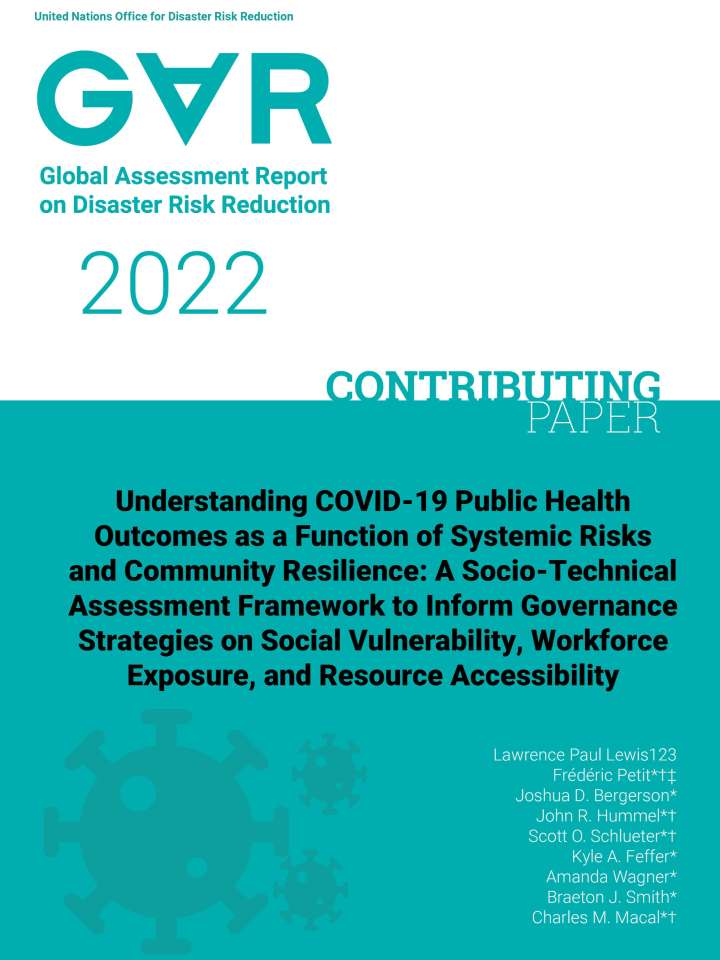Understanding COVID-19 public health outcomes as a function of systemic risks and community resilience: A socio-technical assessment framework to inform governance strategies on social vulnerability, workforce exposure, and resource accessibility
This paper summarises the Argonne National Laboratory research team’s efforts in conducting these assessments to support local public health interventions in the City of Chicago, and the potential applications for communities throughout the world. The COVID-19 pandemic has presented extraordinary challenges to every community across the globe. Yet public health outcomes have exhibited widely disproportionate impacts across communities, revealing significant variances in how systemic risks created or multiplied by the pandemic have affected different communities and the extent to which those communities are capable of exercising coping capacities to maintain resilience. Social vulnerability metrics were adapted to assess how social determinants of health shape risk profiles and resilience capabilities at local community levels.
The study reveals that the multidimensional challenges presented by the COVID-19 pandemic have resulted in widely disproportionate impacts across communities. The significant disparities in how systemic risks have affected communities and the extent to which communities are able to exercise resilience to the hazards presented by the pandemic necessitate governance strategies that address these inequities. Policymakers must continuously assess whether the governance strategies that have been implemented or are being contemplated will support effective pandemic response and recovery across all communities.
